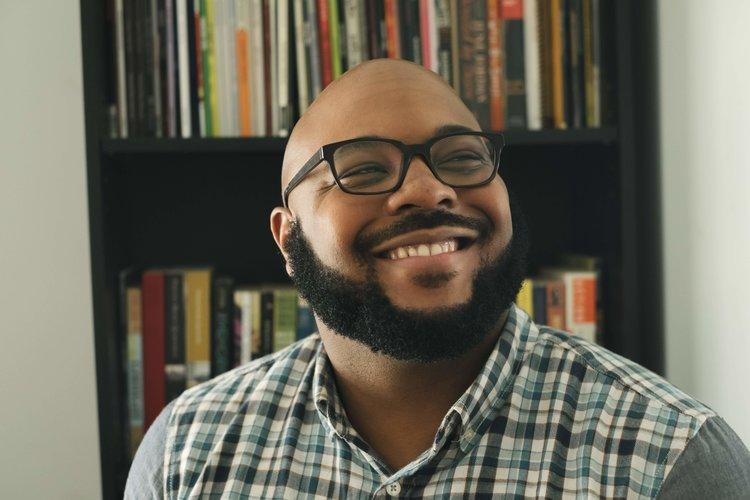
Nate Marshall’s literary creativity is multi-faceted. He is a poet, a playwright, an editor, a rapper, and an educator.
While he is often hailed as a “Chicago writer” because of his deep connection to his city of origin, he now lives and works in Colorado Springs as an assistant professor of English at Colorado College.
Marshall said being in the West offers him a unique kind of perspective. That’s especially true in his latest collection of poetry, “FINNA.” Several of the poems are directly related to his experience of moving to Colorado.
In “landless acknowledgment,” the book’s opening poem, Marshall riffs on the practice of land acknowledgments — that is, saying out loud whose indigenous land you’re standing on. It was something he first encountered at Colorado College events and it struck a chord with him. He said it made him reflect on landlessness and lost roots for Black people in America.
“Where in this country do we fit?” he asked. “Where do we have a home?”'
In “landless acknowledgment,” Marshall writes:
“before we get started, we would like to acknowledge that we live on some unceded bones./ sometimes me & mine imagine ancestral homes. all i got so far is Montgomery, Alabama./ maybe a boat. maybe a plot of land somewhere so far from the south sides i’ve claimed/ that i would get lost on the way.”
Marshall further explores the themes of home and identity through a series of poems, each identically titled, “another Nate Marshall origin story.”
It all started when he got a news alert on his phone once that led to a story about another person with his name. That other Nate Marshall happened to be a Colorado man who had ended his bid for the state legislature after reports surfaced of his ties to white supremacist activity.
“I got really interested in him as a figure,” Marshall said. “Over the last four or five years, writing this book, my primary engagement with Colorado was as the place where this opposite adversary lives.”
“& don’t get me wrong/ i’m not saying i’m like him/ i’m just saying i’m not not,” he writes in one poem.
The book’s title is also layered. “FINNA,” as defined by Marshall, means “fixing to” or “intending to.”
“It appealed to me,” Marshall said, “because it’s this piece of language that’s undeniably Black and undeniably southern in origin.”
But he said it hasn’t been recognized as a proper word.
“Reclaiming it felt important to me,” he said.
“FINNA” is coming into the world at a time when much of the nation is reckoning with the deaths of Black people at the hands of police. In Colorado, the deaths of Elijah McClain in Aurora and De’Von Bailey in Colorado Springs have sparked mass protests. Meanwhile, people of color are disproportionately affected by COVID-19.
“But Black people have always had to contend with these issues,” Marshall said. “I’m from a community in Chicago with the highest rate of infant mortality. Public health is always on high alert for my community. It’s the same with mass unemployment. I know people who’ve died from COVID and from gun violence. But these things are not revelations.”
In fact, Marshall started writing poetry around the age of 13, just after his first encounter with police.
“It was central for my process and genesis as an artist,” he said. “I have never had the privilege to look away from those things. I grew up in a segregated neighborhood. I went to a college where one of the buildings had inscribed on it ‘Confederate Memorial Hall’. This is not new to me.”
But he does think literature and other forms of creativity can help people process difficult realities.
“The last many months have exposed a deeply American need for historical reckoning,” Marshall said. “We never did that as a country. We never en masse as a country thought about people having stolen these lands to settle on. What does that mean about the possibility of an American state existing ethically? What does it really mean that we stole people? And stole their ability to access their lineage?”
“Literature,” he said, “is important because it’s one of the places where some of that reckoning is happening and has happened. It offers the closest thing we can get to approaching the interiority of people who are different than us.”
This year, Marshall will be teaching Beginning Poetry, Introduction to Creative Writing, and Literature in the Age of Hip Hop at Colorado College.
Colorado College holds the license for KRCC, which is part of Colorado Public Radio.









